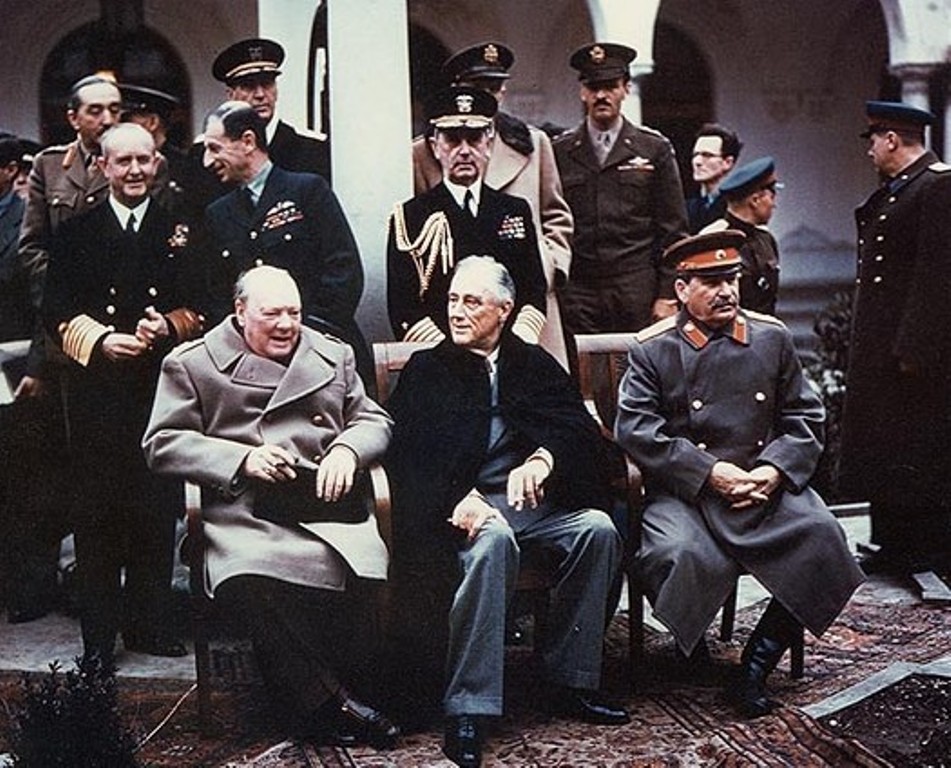
Robert E. Berls Jr., PhD
Senior Advisor for Russia and Eurasia
Atomic Pulse
The Roots of Russian Conduct is the first in a new monthly
series on Russia for Atomic Pulse. Authored by NTI Senior Advisor
for Russia and Eurasia Robert E. Berls, Jr., PhD, at a time of serious tensions
between Russia and the West, the series will examine Russia’s national interests and how the Putin regime pursues
them. Berls, a retired Air Force colonel who served as air attaché at the U.S. Embassy
in Moscow in the 1980s, holds a doctorate in Russian area studies from
Georgetown University and a master’s degree in Soviet Studies from Harvard
University.
In 1939, Winston Churchill uttered the now-famous statement, “Russia
is a riddle, wrapped in a mystery, inside an
enigma.” He was not alone in being puzzled by Russia’s conduct. Across centuries, Russia has been regarded as
a mysterious land. In 1839, the French aristocrat and writer the Marquis de Custine
traveled to Russia and wrote a popular “exposé” on the backwardness of Russian society
and the appalling conduct of its aristocracy at the time of Emperor Nicholas I. Even Russians have struggled to define themselves
and their country. The words of the 19th century Russian poet and
statesman Fyodor Tyutchev perhaps best described this conundrum in a short poem,
the essence of which is that Russia cannot be grasped by the mind; it can only
be appreciated by faith.
In modern times, Churchill’s words
expressing his bewilderment over Russia have been repeated endlessly by
statesmen, politicians, scholars, and journalists to explain and justify their
frustration with Russia and its behavior in both the domestic and international
arenas.
But how true is Churchill’s
adage? Does Russia, indeed, operate in mysterious ways that confuse and confound
us in the West? Or can our failure to understand Russia be more accurately
attributed to our own shortcomings, ignorance and propensity for
mirror-imaging?
Any student in a Political Science
101 course learns early on that countries pursue international policy
objectives based largely on their national interests. Although governments
change and strategies come and go, national interests remain fundamentally unchanged.
This was just as true for Great Britain under Winston Churchill as it was for
the Soviet Union under Stalin. The same can be said for the United States under
Donald Trump and for Russia under Vladimir Putin.
The pursuit of national
interests is the major motivating force of any country’s foreign policy. As
Hans Morgenthau, a leading political scientist of the 20th Century,
describes it, “The meaning of national interest is survival—the protection of
physical, political and cultural identity against encroachments by other
nation-states.” These basic interests are
fundamental, even as national interests vary from country to country.
Russia, in this regard, is no different from
Great Britain, the United States, or any other country with clearly defined
national interests and identifiable factors that influence the pursuit of these
interests.
The number one priority for Putin and his regime
is survival and retention of power, a particularly vital priority in
authoritarian regimes. The survival of the Russian state and protecting it from
domestic and foreign threats follows, and the next priority is the preservation
and expansion of Russia’s sphere of influence in the international area. This is
manifested in Russia’s drive to achieve status as a world power and in its
efforts to influence/dominate its neighbors. Lower on the scale of priorities
are the promotion and preservation of Russia’s economic interests, its cultural
heritage and identity, and its domestic social order.
Numerous factors influence the ability of Russia
and its leaders to pursue these national interests and determine the manner in
which they do so. Among them are
geography, history, cultural heritage, religion/ideology, the power and role of
the individual leader and his power structure, societal dynamics and pressures
(e.g. innovation vs. stagnation, change vs. tradition), and the impact of
opposing forces, both internal and external, on the ability of the country’s
leaders to pursue their policy objectives.
In examining Russia’s national interests and how
the Putin regime pursues them within the framework of factors that affect its policies
and promote or limit its ability to carry them out, this new series aims to
offer insight into the riddle, mystery, and enigma that so troubled Churchill
and others.
Sign up for our newsletter to get the latest on nuclear and biological threats.
